
SUMMER
SCHOOL
organized by HOMEWORK at PS122 Gallery
June 2-24, 2007
SUMMER SCHOOL was a temporary school that offered lectures, workshops and performances led by artists. Free and open to the public, SUMMER SCHOOL playfully adapted educational strategies to transmit alternative knowledge. Classes ranged from Home Economics (a cooking show in Esperanto), to History (a presentation of propaganda films) and Physical Education (a workshop using digital media to organize physical movement).
Faculty
Jimbo Blachy & Lytle Shaw | Jonah Bokaer |
Allen Frame | Benj Gerdes | Tamar Guimaraes
| Fritz Haeg | Leif Holmstrand |
Seth Kim-Cohen | Laloko | Lin + Lam
| Trygve Luktvasslimo | Lize Mogel |
Xaviera Simmons | Ginger Brooks Takahashi |
Soyoung Yoon
Classes/Lectures/Workshops/Performances
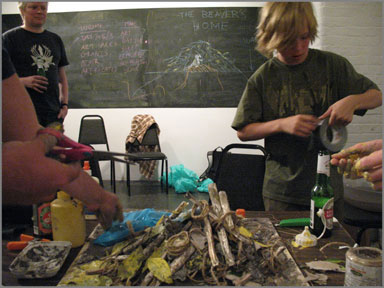
Jimbo
Blachly & Lytle Shaw
Monument Misunderstood
Sunday June 17, 5:30 - 7:30pm
The Chadwicks are a prominent family of aesthetes, dandies, anthropologists, landlords, and armor collectors on both sides of the Atlantic since the colonial era. Recently, Blachly and Shaw assisted The Chadwicks in research about (and public lobbying for recognition of) the family’s neglected contributions to the architecture of seventeenth-century New Amsterdam. The result was to have been a commemorative vitrine dedicated to one Cornelius Van der Chadwijk, architect of New Amsterdam’s first fort; this monument was to have been formally installed on May 5th in Hanover Square in the heart of Dutch New York. The fact that the vitrine was not installed that day was embarrassing for the Chadwicks, since two family members had led a large public tour of their ancestor’s architectural sites that was to culminate at the monument’s location.
This brief educational seminar acquainted the public with the Chadwick Family history and the case of the rejected monument; Blachly and Shaw lead a series of sculptural exercises designed to salvage the monument and win the approval of the Parks Commissioner.
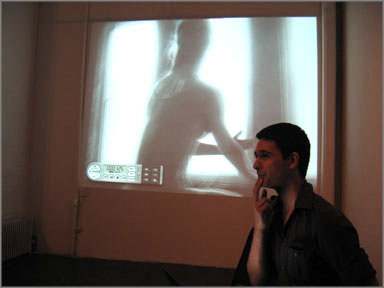
Jonah
Bokaer
A Moving Body in the Built Domain
Saturday, June 9, 4:30 - 5:30 pm
Lecture/demonstration on the uses and applications of digital media towards organizing movements for the human body. Bokaer briefly plotted the history of dance on camera; explored animation and keyframing techniques which emerged within digital software in the 1990s; introduced new technologies of capture in 3D space; and pointed towards contemporary usages of “the maquette” and “the database” as they have existed in postmodern theory.
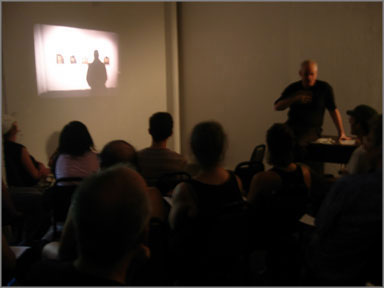
Allan
Frame
Painting Space 122: Alternative Roots, and Stability in a Marginal
Setting
Saturday,
June 2, 5 -6pm
A lecture about the formation of Painting Space 122 in the context of the alternative art space movement of the late 1970’s and early 1980’s, a time when artists all over the U.S. created their own non-profit spaces to present work that was outside the art market. The artists of Painting Space 122 were the first to develop the East Village city-owned former public school building and invited other organizations, such as Performance Space 122, to share the space. As a public service, the studio artists of Painting Space 122 have always supported a gallery to showcase the work of other emerging and under-recognized artists. Frame traced the history of the gallery, showing examples of the work of some of the artists who have shown there, and talked about the ways the studio and gallery programs have expanded over the years, while remaining stable through deep changes within the neighborhood.
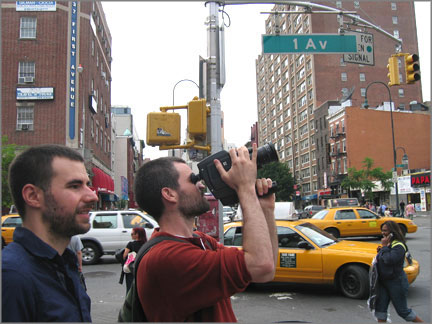
Benj
Gerdes
Uneven Development on Super-8
Sunday,
June 10, 1-5 pm
In this teach-in participants explored how to make a film about a structure that is not fully visible. They shot and processed a group-authored super-8 film all in one afternoon. The workshop and film addressed the predatory real estate development in the neighborhood around PS122. Super-8mm film served as a method of accessing a prior historical moment in the same neighborhood.
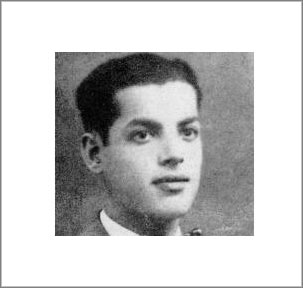
Tamar
Guimarães
A Man Called Love
Friday, June 8, 6:30 - 7 pm
This video lecture presented research based on Francisco Xavier, a Brazilian psychic medium and psychographer (a technique of channeling spirits in order to write) who dedicated his life to notating the words spoken to him by disembodied spirits. Speaking about Xavier is also to speak of class, race and gender relations in Brazil and to think over the military dictatorship lasting from 1964 to 1985, the period in which Xavier reached his greatest popularity.
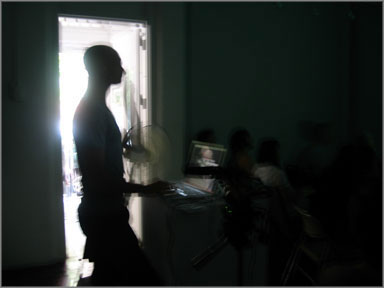
Fritz
Haeg
Teaching as a Creative and Political Action
Sunday, June 3, 2-3:30 pm
Fritz Haeg discussed his role as educator and how it relates to his larger practice. Last year he established the Sundown Schoolhouse in his geodesic dome in Los Angeles and for over 10 years he has been a college educator in design, art and architecture. He discussed the role of the teacher in the arts and in society at large, the short-comings he has observed in the conventional 21st century college education and possible alternatives that he is currently exploring in his college classes and at the Schoolhouse.
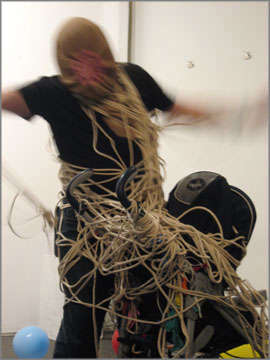
Leif
Holmstrand
Sally Rattenmann, Rosemary’s Baby and A Couple Of Songs
Sunday, June 17, 6:30 -7 pm
A strange learning process or is it a strange healing process that evolves out of dissociation and distanciation? Using a pram, rope, balloons and singing– the performance is a humorous ritual and a journey where one must overcome gaps and jump over hurdles to understand the fragmented performing subject who is attempting to become something that is whole.
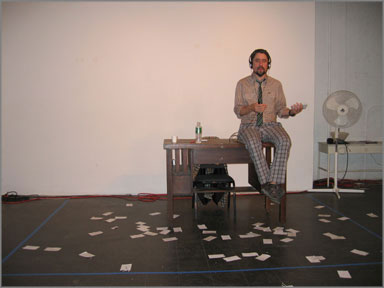
Seth
Kim-Cohen
Seven great rock music record albums and everything I can think of
to say about them in the time it takes to listen to them
Saturday, June 23, 11am-5 pm
Listening on my iPod to seven seminal rock and roll record albums, I provided a live running commentary. The albums and the time they each started were announced in advance. Visitors could come prepared to listen along to the music on their iPods, keeping one ear free to listen to the commentary. Albums listened to were: Highway 61 Revisited- Bob Dylan / Hunky Dory- David Bowie / White Light/White Heat-The Velvet Underground / Second Edition-Public Image Ltd. / Beggars Banquet-The Rolling Stones / Histoire De Melody Nelson- Serge Gainsbourg / Marquee Moon-Television.
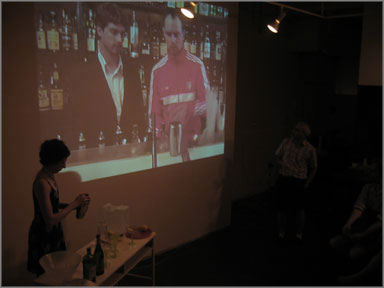
La
Loko
How to Make a Samideana Koktelo
Sunday, June 3, 4 - 4:30 pm
Legend states that a Hispanic bartender, Martinez, was the creator of a martini. He worked in a Manhattan (also the name of a cocktail) bar often frequented by Rockefeller who was one of the first who tasted the concoction soon after it was created, and that it was after a conversation between the two that gave the drink its name.
The first in a series of Esperanto cooking show programs, La Loko made samideana koktelo, a signature drink created in 2004. It reinvented the dry martini cocktail using gin and sake. Superb gin and superb sake, while brewed in different contexts and histories, both can be attributed to having a fine tuned and subtle process in the making that is an art. La Loko’s reinterpretation of the original martini makes the drink more universally global... and it was very tasty indeed!
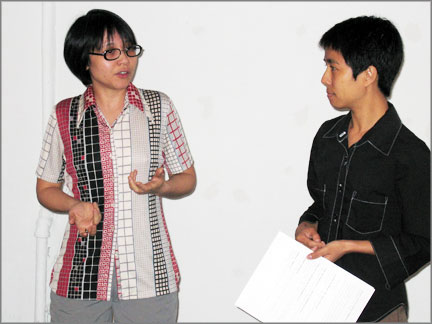
Lin
+ Lam
Homefront
Friday, June 8, 7 -9 pm
Taking a sample of entertaining animation, educational film, and war office propaganda, Lin + Lam (H. Lan Thao Lam and Lana Lin) held a class that looked at how governments and governmental agencies have used the cinema as their voice box, bringing films to comrades and citizens to promote nationalism and raise support for military endeavors.
Films
included:
Le Train En Marche (The Train Rolls On). 16mm, 32 min, 1971. Chris Marker,
Dir. // USOM News Magazine No. 2 (Mobile Information Units). 16mm, 4 min,
1957. (Freedom Films, South Vietnam) // The Rise of Nationalism in Southeast
Asia.16mm, 16 min, 1961. (McGraw-Hill Text-Films) // Japanese Relocation.
16mm, 11 min, 1943, (U.S. Office of War Information) // Conflict. 35mm
film, 8 min, 1983, Garry Bardin, Dir. (Soyuzmultfilm).
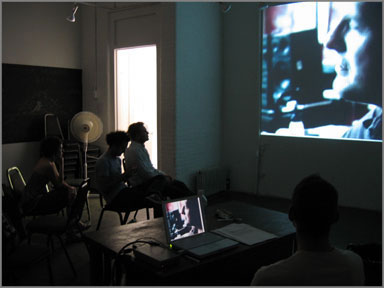
Trygve
Luktvasslimo
Catching Fire
4:30 -6 pm
This performance-as-lecture traced the use of money and its existence within cultural production, pop culture, subculture, plus and minus. Participants joined the artist on a pendulum swinging between a physics class, a history lesson, and New Year’s Eve; between opposition and confusion, surface and content, overstatement and subtlety, above and below, author and plagiarizer, magic tricks and illusions, entertainment and boredom, black and white, green and pink, inclusion and exclusion.
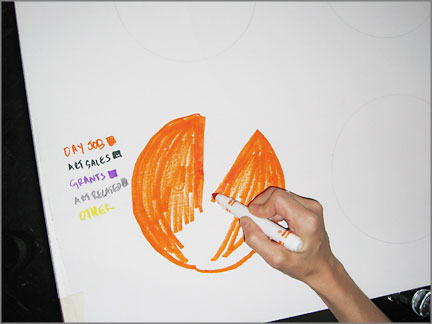
Lize
Mogel
The Economy of the Art World
Saturday, June 16, 1 -3 pm
This workshop/think-tank explored the real economies of artists who work within and outside of the market. Art is a big business, but artists are not the main beneficiaries (financially speaking). The class looked at the social and economic structures that create this fiscal imbalance; and at contemporary strategies that follow market models to create more sustainable economies for artists. These include the Artist’s Pension Trust, proposed federal legislation HR 1120, and various entrepreneurial models; as well as non-market alternatives. They talked about our their own experiences of how work (both objects and labor) is valued. They mapped different art-world economies, and the workshop participant's own place within them.
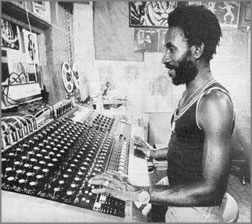
Xaviera
Simmons and Claudia DeSousa-Baptista
Sound System: An Introduction
Sunday, June 24, 1-4 pm
In Jamaica, a Sound System is a popular type of nomadic outdoor concert/party. It is generally regarded as an important part of Jamaican cultural history and responsible for the rise of modern musical styles. Made popular in 1950’s Kingston ghettos, DJs would load a truck with a generator, turntables, and huge speakers and set up street parties. At first, DJs played American R&B, but later on the sound migrated to a local flavor. Vintage images, texts, music samples and films will provide an introduction to the Sound System, its relation to the culture, politics and history of Jamaica and its extremely important influence on rap/hip hop. The film a Roots Rock Reggae - Inside the Jamaican Music Scene (1977) was also screened.
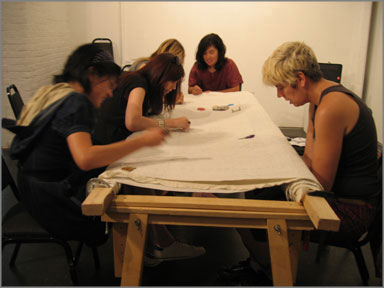
Ginger
Brooks Takahashi
An Army of Lovers Cannot Fail
Saturday, June 9, 12 - 4 pm
In November 2004, I initiated ongoing quilting forums organized in homes, galleries, gardens and other public settings. I see the history of family/community quilting as harnessing possibly the foremost political activities: community-building and dialog, creating a sense of belonging for those who participate. The quilting forums are symbolic of the same ideals upheld by my own queer community. While redefining these traditions, this forum brings the spirit of this shared experience to an extended community. Also considering historically outdated modes of production, this quilt has been in progress for over two years, and will require at least one more year to completion. Thankfully, the end product is not the piece, but rather the process —the informal gatherings and invaluable dialog between friends and strangers.
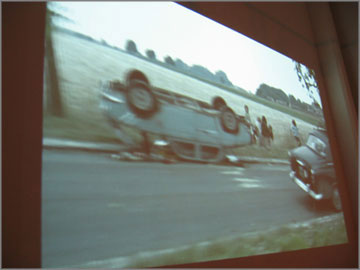
SoYoung
Yoon
A
Whole Locus of Play
Saturday, June 16and Sunday June 17, 3 -6 pm
Walter Benjamin’s Theses on the Philosophy of History (1940) provides the center of our locus of play. Written only a year after the Nazi-Soviet Pact, it is one of Benjamin’s most enigmatic and urgent essays, ultimately necessitating a radical questioning of the very position from where and when we speak. The class addressed this urgency by reading this essay in dialogue with Benjamin’s other writings, especially the Work of Art in the Age of Technological Reproducibility (1935-39), along with the theories and practices of the historical avant-garde: Dada, Surrealism, and the Soviet Avant-garde.
The class saw the reverberations of the essay in our current context, particularly its re-interpretation via the lens of Marxism and psychoanalysis, political theology, political philosophy, film theory as well as its re-articulation in contemporary artistic practice.